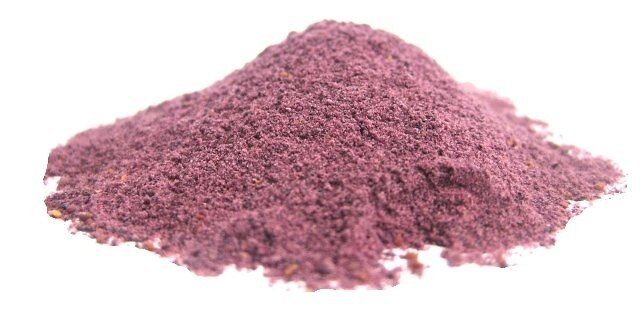
According to World Health Organization, consuming 50 g of processed meat a day (equivalent of two slices of bacon) increases the chance of developing colorectal cancer by 18%. WHO’s International Agency for Research on Cancer classifies processed meat in the same category as tobacco smoking and asbestos (Group 1
, carcinogenic to humans). Processed meat refers to meat that has been transformed through salting, curing, fermentation, smoking, or other processes to enhance flavor or to improve preservation. Substances extracted from berry pomace can be used in meat products as natural additives.
“Nitrites and nitrates
, used in meat products for increasing its taste and shelf-life, in the process of digestion can become carcinogenic nitrosoamines. Another type of carcinogenic substances form when meat is heated at extremely high temperature”, says Professor Rimantas Venskutonis, Chief Researcher at Food Science and Technology Department, KTU, Lithuania.
What is Berry Pomace?
Berry pomace is a valuable but little used by-product of juice manufacturing. When processed to a stable fruit powder, the composition differs from that of the whole fruit.
Why Use Berry Pomace?
Scientists from different countries have collected great body of scientific evidence on the beneficial properties of bioactive ingredients found in berries – strong antioxidants
, capable of subduing inflammatory processes in the organism, they can help diminish the risk of cardiovascular diseases and even destroy cancer cells. Some of the active substances found in berries could inhibit the process of carcinogenic substances formation in meat during heating. Moreover, once these substances are present in human organism, they can activate certain defense mechanisms, detoxification systems and in such a way they might reduce the risk associated with the consumption of processed meat”, says Prof Venskutonis.
As some of them are strong antioxidants, have antimicrobial properties and other useful properties, these naturally active ingredients can be used for increasing shelf-life of meat products, and improving their colour and other quality characteristics. The second
, and more complicated goal is to prove the actual benefits the phytochemicals have on human health. To step forward in this direction, the KTU researchers will collaborate with the Lithuanian University of Health Sciences.
In the research the pomace of most locally growing berries is being used. Some of them, such as raspberries, blueberries, cranberries, black chokeberries are more common, and some, such as snowball tree berries – less widely consumed and therefore under-investigated.


